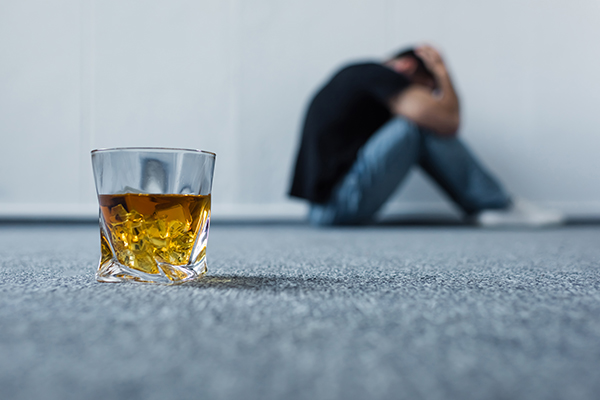For most people, drinking alcohol is nothing more than a way to relax after a long day. People with alcohol use disorders do not have the same luxury of experiencing a beer after a day at work. Problem drinking that turns into severe drinking is given a medical diagnosis of an alcohol use disorder or AUD. It is a chronic relapsing brain disorder that is stamped by an impaired ability to stop or control any alcohol consumption, despite any adverse effects or negative consequences it has on the person, occupational, social, or health. According to the National Institutes of Health:
An estimated 15 million people in the United States have AUD. Approximately 5.8 percent or 14.4 million adults in the United States ages 18 and older had AUD in 2018. This includes 9.2 million men and 5.3 million women. Adolescents can be diagnosed with AUD as well, and in 2018, an estimated 401,000 adolescents ages 12–17 had AUD.

The Science Behind Alcohol Addiction
There is a science that can be used to explain why alcohol is so addictive, specifically the ethanol molecule. This molecule first binds with the GABA-a receptor. GABA then slows and stops neuron activity. Similarly, alcohol also inhibits glutamate, which is the counterpart molecule to GABA that is used to excite any neuron activity. These combined effects cause the calming effects that alcohol produces. There is also a substantial consequence of alcohol and its interference with the reward system, called the GABA pathway.
Many Factors are Associated with Alcoholism
The reward pathway is the body’s way of reinforcing good behaviors and eliminating the bad ones by creating dopamine. Alcohol stimulates these endorphins and consequently stimulates the body and mind’s reward center. After chronic use of alcohol, the body will require more and more to achieve the same level of euphoria as it did in the beginning. Alcohol use disorder itself has multiple causes such as genetic, psychological, physiological, and social factors all playing a role, Not every person with this disorder is affected by the same cause, For some psychological traits like impulsiveness, a need for approval, and low self-esteem promote alcohol use. Others use it to medicate to help with emotional problems. Environmental and social factors like peer pressure or easy access to alcohol can play a key role. Physical or sexual abuse and poverty also increase the odds of someone developing an alcohol use disorder. Genetic factors also play an important role and make people especially vulnerable. Once a person begins to drink excessively, the problem continues to perpetuate itself. Excessive and heavy drinking can cause physiological changes that make it even more challenging to abstain from drinking simply to avoid feeling discomfort of withdrawal. The best and safest option to getting off of and stay off alcohol is to find a treatment program. We offer detoxification, intensive inpatient, residential, and dual diagnosis treatment that provides therapeutic education and guidance for each individual. With the help of our team of therapists, we offer one on one, group therapy, as well as many other specialized options to fit each person’s needs. Alcohol use disorder requires a multi-layered approach for maximum success. We want to make sure you have the tools you need to avoid relapse in the real world.
Alcohol Abuse Help at Evoke Wellness at Miramar
Alcohol use disorder isn’t an easy thing to face. Luckily you do not have to face it on your own. It may be challenging to recover, but it is not impossible. Our admissions counselors and professionals are available around the clock. We are ready to help you or a loved one overcome the disease of addiction. Now is the time to change your life. Let Evoke Wellness at Miramar help you do it.


